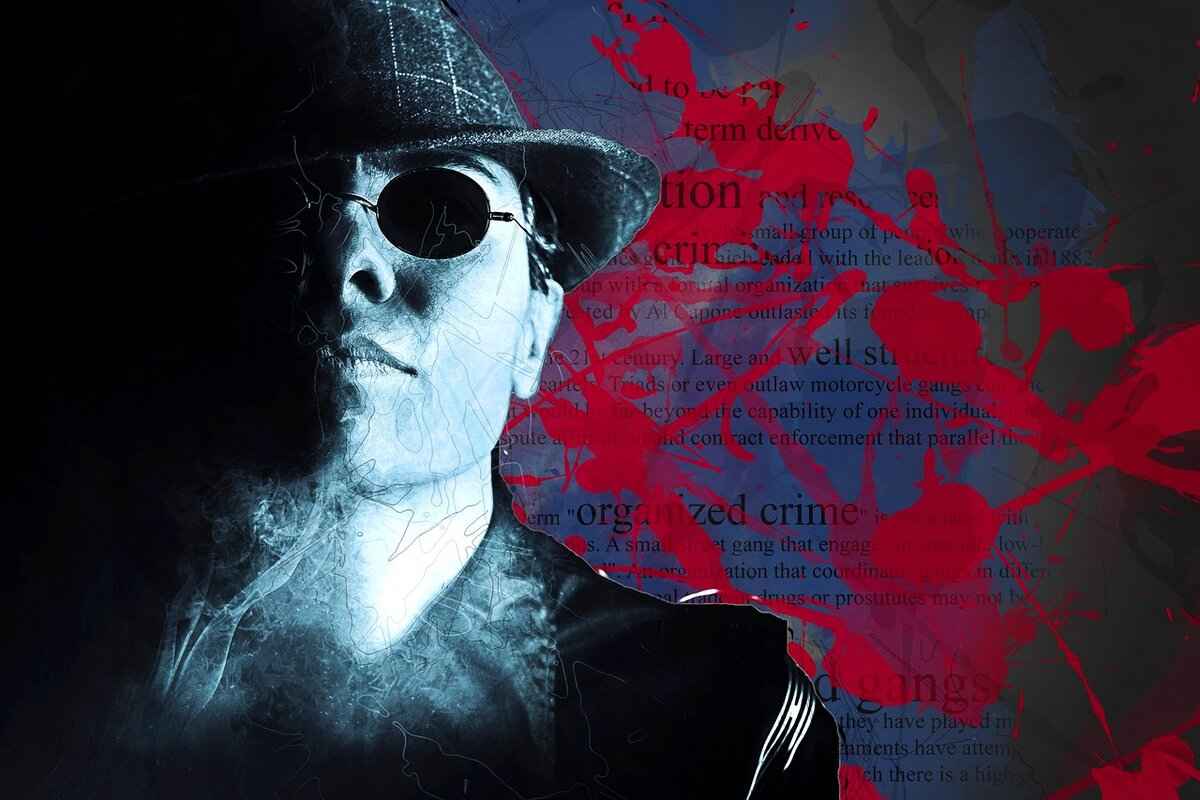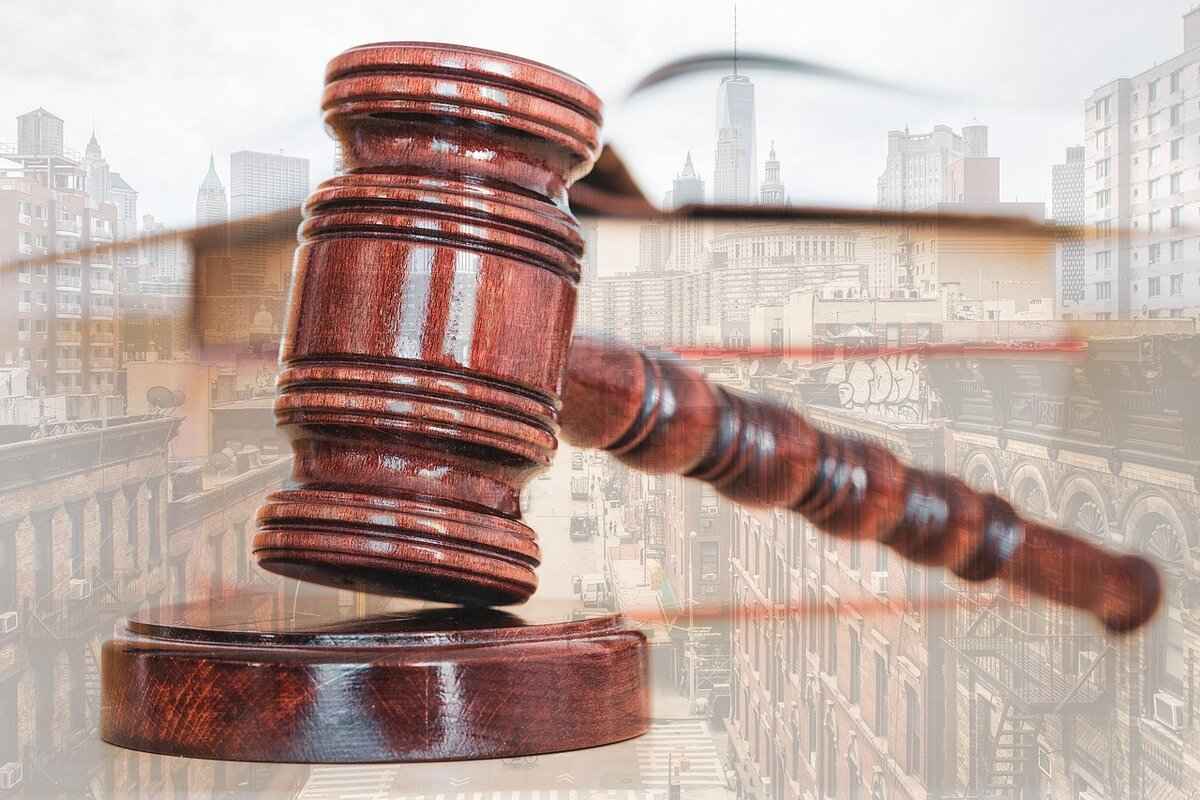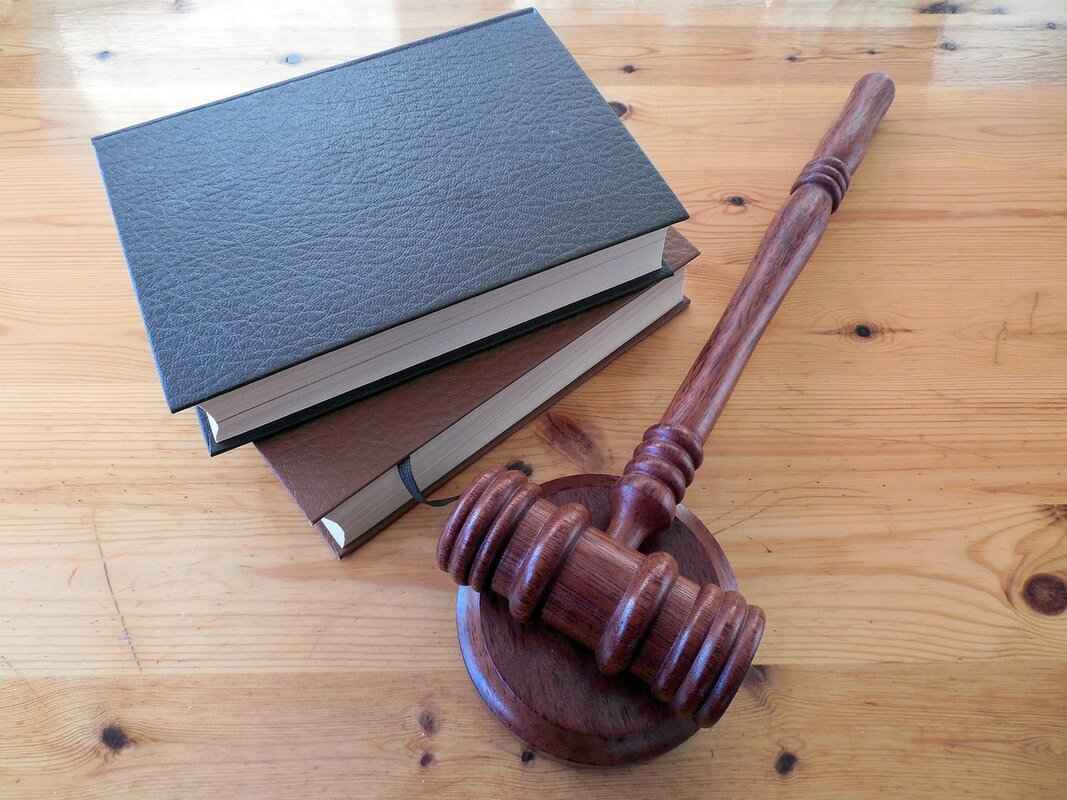In the realm of criminal law, the question of how to prove one’s innocence can be daunting. This article delves into the strategies and steps individuals can take to effectively navigate the legal system and establish their innocence. By understanding the intricacies of the law and employing the right tactics, defendants can significantly improve their chances of a favorable outcome.
The burden of proof is a cornerstone of criminal law, dictating the responsibility of proving guilt or innocence. In the United States, the prosecution bears the burden to prove the defendant’s guilt beyond a reasonable doubt. This section highlights the implications for defendants, emphasizing that they do not need to prove their innocence but rather challenge the prosecution’s case.
Evidence is the linchpin in any criminal case. It can take various forms, each playing a critical role in establishing a defendant’s innocence. Understanding how to leverage different types of evidence is essential for a successful defense.
- Physical Evidence: This includes tangible items such as fingerprints, DNA, and weapons. Such evidence can decisively corroborate a defendant’s claims.
- Testimonial Evidence: Witnesses can provide crucial support for a defendant’s alibi or counter the prosecution’s narrative. Reliable witnesses are invaluable.
- Documentary Evidence: Emails, texts, and financial records can shed light on the situation and support claims of innocence.
Creating a robust defense strategy is vital for proving innocence. This involves several key components:
An experienced attorney can significantly influence the case outcome. Look for qualities such as a strong track record, familiarity with local laws, and a commitment to your defense.
Collecting evidence that supports your case is paramount. Be proactive in gathering documentation and witness statements that bolster your defense.
An alibi defense can be a powerful tool. It involves establishing a credible account of your whereabouts during the alleged crime. To support an alibi, gather evidence such as:
- Witnesses who can confirm your presence elsewhere.
- Surveillance footage or digital records.
Expert witnesses can provide specialized knowledge that supports your defense. Consider engaging experts in fields such as forensics, psychology, or accident reconstruction to bolster your case.
Familiarity with legal procedures is empowering. Understanding the stages of a criminal trial, from arraignment to sentencing, can help you navigate the process more effectively.
How a defendant conducts themselves throughout the legal process can significantly impact their case. Maintaining professionalism and composure during court appearances is essential. This not only reflects well on you but can also influence the perception of jurors and judges.
In conclusion, proving your innocence in a criminal case requires a strategic approach, a thorough understanding of the legal system, and the right support. By focusing on evidence, engaging experienced legal representation, and maintaining a clear and composed demeanor, you can navigate the complexities of your case more effectively.

Understanding the Burden of Proof
The concept of burden of proof is a cornerstone of criminal law, fundamentally shaping the dynamics of a legal case. It establishes which party holds the responsibility to prove the facts in dispute, thereby influencing the entire judicial process. In criminal cases, this burden typically rests on the prosecution, which must demonstrate the defendant’s guilt beyond a reasonable doubt. This article delves into the implications of the burden of proof for defendants and the broader legal context.
To understand the burden of proof, it is essential to recognize its two primary components: the burden of production and the burden of persuasion. The burden of production requires the party to present sufficient evidence to support their claims. In a criminal trial, this means the prosecution must introduce evidence that substantiates their allegations against the defendant. Conversely, the burden of persuasion refers to the obligation to convince the judge or jury of the truth of a claim. In criminal cases, this means the prosecution must persuade the jury that the defendant is guilty.
For defendants, the burden of proof carries significant implications. While the prosecution must prove guilt, defendants are not required to prove their innocence. However, they can present evidence and arguments that challenge the prosecution’s case. This is where a solid defense strategy becomes crucial. Defendants can introduce exculpatory evidence—evidence that supports their innocence or casts doubt on the prosecution’s claims. For example, presenting an alibi or highlighting inconsistencies in witness testimonies can effectively undermine the prosecution’s narrative.
Moreover, understanding the burden of proof empowers defendants to actively participate in their defense. Knowledge of this principle allows them to work closely with their attorneys to identify weaknesses in the prosecution’s case and formulate a compelling defense strategy. This collaboration is vital, as an experienced attorney can guide defendants through the complexities of the legal system, ensuring that their rights are protected and their voices are heard.
In addition to exculpatory evidence, defendants should also be aware of the role of reasonable doubt in their case. The prosecution’s failure to eliminate reasonable doubt can lead to a verdict of not guilty. Defendants can leverage this principle by highlighting any ambiguities or uncertainties in the evidence presented against them. This strategy is particularly effective when the prosecution relies heavily on circumstantial evidence, which can often be interpreted in multiple ways.
Furthermore, the burden of proof also serves as a reminder of the presumption of innocence—an essential legal principle that asserts that a defendant is considered innocent until proven guilty. This principle is foundational in the American legal system and emphasizes the importance of protecting individuals from wrongful convictions. By understanding the burden of proof, defendants can better appreciate their rights and the protections afforded to them under the law.
In summary, the burden of proof is a critical element in criminal law that significantly impacts defendants. By understanding its implications, defendants can actively engage in their defense, challenge the prosecution’s case, and work towards proving their innocence. Knowledge of this concept not only empowers defendants but also reinforces the fundamental principle of justice in the legal system.

The Role of Evidence in Proving Innocence
In the realm of criminal law, evidence serves as the cornerstone for establishing a defendant’s innocence. Understanding the various types of evidence and their application is essential for anyone navigating the complexities of a criminal case. This section delves into the critical role that evidence plays in proving innocence, detailing the different types and how they can be effectively utilized.
Evidence can be classified into several categories, each with its unique implications and applications in court. The primary types include:
- Physical Evidence: Tangible items that can be collected and analyzed, such as fingerprints, DNA, and weapons.
- Testimonial Evidence: Statements made by witnesses who can attest to facts relevant to the case.
- Documentary Evidence: Written materials, including emails, contracts, and financial records, that can provide context or support for claims.
Physical evidence is often considered the most compelling type of evidence in a criminal case. Items such as DNA samples can definitively link or exclude a suspect from a crime scene. For instance, if a defendant’s DNA is not found at the crime scene, it can be a strong indicator of their innocence. To effectively gather and present physical evidence, it is crucial to:
- Ensure proper collection and preservation to maintain the integrity of the evidence.
- Engage forensic experts who can analyze and interpret the findings.
Witnesses can provide vital information that supports a defendant’s claims. Their testimonies can corroborate an alibi or challenge the prosecution’s narrative. To maximize the impact of testimonial evidence, it is important to:
- Identify reliable witnesses who can provide credible and consistent accounts.
- Prepare witnesses thoroughly for their testimonies to ensure clarity and confidence.
Documentary evidence can be a powerful tool in establishing innocence. For example, text messages or emails can demonstrate a defendant’s location at the time of the crime or contradict the prosecution’s timeline. To leverage documentary evidence effectively, consider the following:
- Gather all relevant documents that may support your case.
- Organize the documents chronologically to present a clear narrative.
In summary, the role of evidence in proving innocence cannot be overstated. By understanding the different types of evidence available and how to utilize them effectively, defendants can build a robust defense strategy. Engaging experienced legal counsel and employing thorough investigation techniques are vital steps in ensuring that all evidence is properly collected and presented. Ultimately, a strong evidentiary foundation can significantly influence the outcome of a criminal case, paving the way for justice and the establishment of innocence.
Types of Evidence
In the realm of criminal law, the presented can profoundly influence the outcome of a case. Each form of evidence plays a unique role in establishing the truth and can either support or undermine a defendant’s claims of innocence. Understanding these various types is crucial for anyone involved in a criminal case.
There are three primary categories of evidence that can be employed in court: physical evidence, testimonial evidence, and documentary evidence.
- Physical Evidence: This includes tangible items that can be presented in court, such as fingerprints, DNA samples, weapons, and other materials directly related to the crime. The significance of physical evidence lies in its ability to provide concrete proof of a defendant’s presence or absence at the crime scene. For instance, if a defendant’s DNA is found at a location where the crime occurred, it can be detrimental to their case. Conversely, if evidence can be gathered that excludes the defendant, it can be pivotal in establishing innocence.
- Testimonial Evidence: Witness statements are crucial in many criminal cases. Testimonial evidence can corroborate a defendant’s alibi or challenge the prosecution’s narrative. The credibility of witnesses is paramount; unreliable or biased testimonies can lead to wrongful convictions. In preparing a defense, it is essential to identify and secure credible witnesses who can support the defendant’s claims, thereby strengthening the overall defense strategy.
- Documentary Evidence: This type of evidence encompasses a wide range of materials, including emails, text messages, financial records, and other documents that can provide context or support for the defendant’s case. For example, if a defendant has proof of being elsewhere at the time of the crime through documented communications, it can significantly bolster their defense. Additionally, documentary evidence can help establish motives or disprove allegations made by the prosecution.
Each type of evidence has its strengths and weaknesses. For example, while physical evidence may be compelling, it can also be subject to contamination or misinterpretation. Testimonial evidence, while valuable, can be influenced by factors such as memory reliability and witness bias. Similarly, documentary evidence, although often very clear, can be manipulated or taken out of context.
To effectively utilize these forms of evidence, defendants should work closely with their attorneys to develop a comprehensive strategy. This includes gathering and preserving evidence, preparing witnesses, and ensuring that all documentation is accurate and relevant. Understanding the nuances of each type of evidence can empower defendants to present a compelling case that supports their claims of innocence.
In conclusion, the different forms of evidence—physical, testimonial, and documentary—play a crucial role in the pursuit of justice. A thorough understanding and strategic use of these types of evidence can significantly impact the outcome of a criminal case, making it essential for defendants to engage with legal professionals who can guide them through the complexities of the legal system.
Physical Evidence
plays a crucial role in the criminal justice system, serving as a tangible link between the accused and the alleged crime. Among the most significant forms of physical evidence are fingerprints and DNA, both of which can be pivotal in proving a defendant’s innocence. This section delves into the methods of gathering and presenting such evidence effectively, ensuring that it can withstand scrutiny in a court of law.
To begin with, it is essential to understand the importance of proper collection techniques. Physical evidence must be collected meticulously to avoid contamination or degradation. For instance, when collecting fingerprints, law enforcement officers should use appropriate powders or lifting tape to preserve the prints without smudging them. Similarly, when dealing with DNA evidence, it is crucial to use sterile tools and to wear gloves to prevent cross-contamination.
Once collected, the next step is documentation. Every piece of evidence must be documented thoroughly, including the time, date, and location of collection, as well as the individuals involved in the process. This documentation serves as a vital record that can be referenced during legal proceedings. In addition, photographs of the evidence in situ can provide context and support the chain of custody.
Presenting physical evidence in court requires a strategic approach. It is essential to work with your criminal defense attorney to ensure that the evidence is presented clearly and effectively. This may involve the use of visual aids, such as charts or diagrams, to help the jury understand the significance of the evidence. Additionally, expert witnesses may be called upon to explain the scientific principles behind fingerprint analysis or DNA testing, reinforcing the credibility of the physical evidence.
Moreover, it is important to anticipate challenges from the prosecution regarding the validity of the evidence. For example, the prosecution may argue that the evidence was mishandled or that the testing methods used were not reliable. Therefore, having a well-prepared defense strategy that includes counterarguments and expert testimonies can significantly bolster your case.
In summary, is a powerful tool in establishing innocence. By following proper collection and documentation protocols, working closely with legal counsel, and presenting the evidence effectively in court, defendants can significantly enhance their chances of proving their innocence. Understanding the nuances of physical evidence and its presentation can make a substantial difference in the outcome of a criminal case.
Testimonial Evidence
In the realm of criminal defense, holds a significant place. It can either support a defendant’s alibi or directly challenge the prosecution’s narrative. The reliability of witnesses is paramount, as their accounts can sway a jury’s perception and influence the ultimate outcome of a case. This section delves into the critical role of witness testimony in establishing a robust defense strategy.
Firstly, it is essential to understand that not all witnesses are created equal. The credibility of a witness can be assessed based on various factors, such as their relationship to the defendant, their ability to recall events accurately, and their willingness to testify. Reliable witnesses can provide compelling accounts that align with the defendant’s claims, thereby reinforcing their innocence. Conversely, unreliable or biased witnesses can undermine a defense, making it crucial to scrutinize the backgrounds and motivations of potential witnesses.
- Types of Witnesses: Witnesses can be categorized into different types, including:
- Eyewitnesses: Individuals who directly observed the events in question.
- Character witnesses: People who can speak to the defendant’s character and history.
- Expert witnesses: Professionals who provide specialized knowledge relevant to the case.
To effectively utilize testimonial evidence, defense teams must engage in thorough preparation. This includes:
- Interviewing Witnesses: Conducting interviews to gather detailed accounts and assess their reliability.
- Preparing Witnesses: Ensuring that witnesses understand the legal process and what to expect during testimony.
- Documenting Statements: Recording witness statements to create a clear and organized presentation of their accounts.
Furthermore, the defense must anticipate challenges from the prosecution. Cross-examinations are designed to test the credibility of witnesses, and the prosecution may attempt to highlight inconsistencies or biases in their testimonies. To counter this, defense attorneys should prepare witnesses thoroughly, helping them to present their accounts confidently and coherently.
Another crucial aspect of testimonial evidence is the alibi defense. When a defendant claims they were elsewhere when the crime occurred, witness testimony becomes vital in corroborating that alibi. For instance, if a defendant claims they were at a party during the time of the alleged crime, having multiple witnesses who can attest to their presence at that event can significantly strengthen their case.
Additionally, the defense may also consider using character witnesses to provide context about the defendant’s behavior and reputation. A strong character reference can help to paint a more favorable picture of the defendant, countering the prosecution’s narrative.
In summary, testimonial evidence is a powerful tool in the arsenal of a defense attorney. The ability to present credible and reliable witnesses can make a significant difference in a criminal case. By carefully selecting, preparing, and utilizing witnesses, defense teams can effectively challenge the prosecution’s claims and work towards proving the defendant’s innocence.
Documentary Evidence
plays a pivotal role in establishing a defendant’s innocence in a criminal case. This type of evidence encompasses various forms of documents, including emails, text messages, financial records, and official correspondence, all of which can provide essential context and support for a defense strategy. In this section, we will explore how to effectively leverage documentary evidence to bolster claims of innocence.
One of the most significant advantages of documentary evidence is its ability to provide a tangible record of events. For example, emails can demonstrate communication between parties, helping to establish timelines or reveal inconsistencies in the prosecution’s narrative. Similarly, text messages can serve as real-time records of conversations that may support a defendant’s alibi or contradict witness testimonies.
Moreover, financial records can offer insights into a defendant’s activities during the time of the alleged crime. Bank statements, transaction histories, and receipts can help establish a timeline that demonstrates the defendant’s whereabouts, thereby providing a solid basis for an alibi. For instance, if a defendant can show that they made a purchase at a specific location during the time of the crime, this can significantly undermine the prosecution’s case.
To effectively utilize documentary evidence, it is crucial to ensure that the documents are authentic and relevant. This may involve:
- Gathering all pertinent documents: Compile all possible communications and records that relate to the case.
- Organizing evidence chronologically: Presenting documents in a clear timeline can help clarify the sequence of events.
- Ensuring authenticity: Be prepared to prove that documents are genuine and have not been tampered with.
Additionally, it is essential to work closely with your criminal defense attorney to analyze the documentary evidence thoroughly. An experienced attorney can identify which documents are most impactful and how they can be presented effectively in court. They can also advise on the legal procedures for introducing evidence and ensuring that it complies with the rules of admissibility.
Another important aspect of leveraging documentary evidence is understanding the potential for digital evidence. In today’s digital age, much of our communication occurs online. This includes social media interactions, digital photographs, and cloud-stored documents. These digital records can be crucial in establishing context or disproving allegations against a defendant. For example, social media posts can provide insight into a person’s whereabouts or state of mind, potentially supporting a defense.
In conclusion, documentary evidence is a powerful tool in proving innocence in a criminal case. By effectively gathering, organizing, and presenting relevant documents, defendants can significantly strengthen their defense. Engaging with a knowledgeable attorney to navigate the complexities of documentary evidence is essential for achieving the best possible outcome in a criminal trial.

Building a Strong Defense Strategy
is a crucial step in the journey of proving one’s innocence in a criminal case. An effective defense strategy not only outlines the approach a defendant will take but also serves as a blueprint for navigating the complexities of the legal system. Below are the key components that should be included in any comprehensive defense plan.
- Hiring an Experienced Criminal Defense Attorney: The first and perhaps most critical step in building a strong defense is securing the services of a seasoned criminal defense attorney. An attorney with experience in handling similar cases can provide invaluable insights and strategies tailored to your specific situation. Look for qualities such as a proven track record, strong communication skills, and a deep understanding of criminal law.
- Gathering Supporting Evidence: A robust defense strategy hinges on the collection of relevant evidence that supports your claims of innocence. This includes gathering physical evidence, securing witness statements, and compiling any documentary evidence that may bolster your case. Organizing this information systematically is essential for presenting a compelling argument in court.
- Utilizing Alibi Defense: If applicable, establishing a credible alibi can be one of the most effective ways to prove innocence. An alibi must be supported by reliable evidence, such as video footage, receipts, or witness testimonies, that confirms your whereabouts during the time the crime was committed.
- Engaging Expert Witnesses: In certain cases, expert witnesses can provide specialized knowledge that supports your defense. These professionals can offer insights into technical aspects of the case, such as forensic analysis or psychological evaluations, which can help clarify complex issues for the jury.
- Understanding Legal Procedures: Familiarity with the legal processes involved in your case can empower you and your attorney to navigate the system more effectively. This includes understanding the stages of the trial, the rules of evidence, and the implications of various legal motions.
- The Importance of Personal Conduct: How you conduct yourself throughout the legal process can significantly impact your case. Maintaining professionalism, composure, and respect for the court can create a favorable impression on judges and juries alike. Avoiding any behavior that could be perceived as disrespectful or erratic is crucial.
In summary, building a strong defense strategy is essential for anyone facing criminal charges. By hiring an experienced attorney, gathering supporting evidence, establishing a credible alibi, engaging expert witnesses, understanding legal procedures, and maintaining appropriate conduct, defendants can significantly enhance their chances of proving their innocence. Each component of this strategy works in concert to create a compelling narrative that challenges the prosecution’s case, ultimately leading to a more favorable outcome.
Hiring an Experienced Criminal Defense Attorney
When facing criminal charges, the choice of legal representation can be one of the most critical decisions a defendant makes. An experienced criminal defense attorney can significantly influence the outcome of a case, making it essential to understand the qualities that make an attorney the right fit for your needs. This section delves into the key attributes to consider when selecting legal representation, ensuring that you have the best chance of proving your innocence.
- Proven Track Record: Look for an attorney with a history of successfully handling cases similar to yours. A strong track record indicates not only competence but also familiarity with the intricacies of the legal system.
- Specialization in Criminal Law: It’s crucial to choose an attorney who specializes in criminal defense. This specialization ensures that they are well-versed in the latest legal precedents and strategies that can be employed in your case.
- Strong Communication Skills: An effective attorney must be able to communicate clearly and persuasively, both in writing and verbally. They should be able to explain complex legal concepts in a way that is easy for you to understand.
- Reputation Among Peers: An attorney’s reputation within the legal community can provide insight into their effectiveness. Positive relationships with judges and prosecutors can be advantageous in negotiating plea deals or favorable outcomes.
- Personalized Attention: An ideal attorney should take the time to understand your unique situation and tailor their approach accordingly. This personalized attention can make a significant difference in how your case is handled.
- Availability and Responsiveness: You need an attorney who is accessible and responsive to your inquiries. Prompt communication can alleviate stress and keep you informed about the progress of your case.
- Strategic Thinking: A good attorney should be able to devise a comprehensive defense strategy based on the specifics of your case. This includes identifying weaknesses in the prosecution’s case and leveraging any available evidence in your favor.
In addition to these qualities, it is also important to consider the attorney’s fee structure. Understanding how they charge for their services—whether it is a flat fee, hourly rate, or contingent fee—can help you make an informed decision that aligns with your budget.
Finally, trust your instincts. After meeting with potential attorneys, consider how comfortable you feel discussing your case with them. A strong attorney-client relationship built on trust and understanding can significantly impact the effectiveness of your defense.
Choosing the right criminal defense attorney is a pivotal step in proving your innocence. By focusing on the qualities mentioned above, you can ensure that you select a legal representative who is not only experienced but also genuinely invested in your case.
Gathering Supporting Evidence
In any criminal case, is a critical step in establishing your innocence. The evidence you collect can make a significant difference in the outcome of your case. This section will provide you with effective strategies for gathering and organizing evidence that can support your defense.
Evidence serves as the backbone of any legal case. It is essential to understand that the type, quality, and presentation of evidence can greatly influence the jury’s perception. Therefore, it is vital to approach the evidence collection process with diligence and foresight.
- Identify Relevant Evidence: Start by identifying what type of evidence is pertinent to your case. This could include physical evidence, documents, and witness testimonies.
- Document Everything: Keep detailed records of all evidence collected. This includes dates, times, and descriptions of the evidence. Use photographs or videos when possible to create a visual record.
- Interview Witnesses: Speak with potential witnesses who can support your claims. Take notes during these interviews and, if feasible, obtain written statements or affidavits.
- Seek Expert Opinions: In some cases, consulting with experts can provide additional support for your defense. They can analyze evidence and offer insights that may strengthen your case.
Once you have gathered your evidence, it is crucial to organize it systematically. A well-organized presentation of evidence can significantly enhance its impact. Consider the following:
1. Create a digital folder or physical binder to store all evidence.2. Label each piece of evidence clearly, indicating its relevance to your case.3. Develop a timeline that correlates with the evidence to provide context.
How you present your evidence can be just as important as the evidence itself. Here are some tips for effective presentation:
- Work with Your Attorney: Collaborate closely with your attorney to determine the best way to present your evidence in court.
- Practice Your Delivery: If you are required to present evidence personally, practice your delivery to ensure clarity and confidence.
- Utilize Visual Aids: Consider using charts, graphs, or multimedia presentations to make complex information more accessible to the jury.
In today’s digital age, technology can play a vital role in gathering evidence. Utilize tools such as:
- Smartphones: Use your phone to take photos, record videos, or document conversations.
- Social Media: Review social media platforms for any posts or messages that could support your claims.
- Data Recovery: If relevant, consider hiring professionals to recover deleted texts, emails, or other digital communications.
By following these guidelines for gathering and organizing evidence, you can build a stronger defense and improve your chances of proving your innocence in a criminal case. Remember, the more comprehensive and well-presented your evidence is, the more likely it is to resonate with the court and contribute positively to your defense strategy.

Utilizing Alibi Defense
An alibi defense can be a powerful tool in proving innocence in a criminal case. It asserts that the defendant was elsewhere when the crime was committed, thereby making it impossible for them to have perpetrated the act. Establishing a credible alibi is essential, and it requires careful planning and thorough evidence gathering.
Steps to Establish a Credible Alibi
- Identify Witnesses: The first step in establishing an alibi is to identify potential witnesses who can confirm your whereabouts at the time of the incident. This could include friends, family members, or even strangers who can vouch for your presence in a different location.
- Gather Documentation: Collect any documents that can support your alibi. This may include receipts, photographs, or video footage that can prove you were not at the crime scene. For instance, a time-stamped receipt from a store can serve as crucial evidence.
- Maintain Consistency: Ensure that your account of events remains consistent. Any discrepancies in your story could weaken your defense. It is important to discuss your alibi with witnesses beforehand to ensure everyone is on the same page.
Types of Evidence to Support an Alibi
To substantiate an alibi, different types of evidence can be utilized:
| Type of Evidence | Description |
|---|---|
| Witness Testimonies | Statements from individuals who can confirm your presence at another location. |
| Physical Evidence | Items such as receipts, texts, or photographs that can validate your claims. |
| Digital Evidence | Data from smartphones or computers that can show your location through GPS or timestamps. |
Challenges in Proving an Alibi
While an alibi can be a strong defense, it is not without challenges. The prosecution may attempt to discredit your alibi by:
- Questioning the credibility of your witnesses.
- Presenting counter-evidence that contradicts your claims.
- Highlighting any gaps or inconsistencies in your story.
Importance of Legal Representation
Engaging an experienced criminal defense attorney is crucial when utilizing an alibi defense. An attorney can help you:
- Develop a comprehensive strategy to present your alibi effectively.
- Gather and organize evidence to support your claims.
- Navigate the complexities of the legal system and ensure your rights are protected.
In conclusion, a well-established alibi can significantly bolster a defense against criminal charges. By identifying witnesses, gathering supporting evidence, and maintaining consistency in your story, you can strengthen your case. However, the challenges posed by the prosecution necessitate the guidance of a skilled attorney to help navigate the legal landscape effectively.

Engaging Expert Witnesses
In the realm of criminal defense, expert witnesses play a crucial role in providing specialized knowledge that can significantly bolster a defense case. These professionals possess expertise in various fields that can help clarify complex issues for the court, ultimately supporting the defendant’s claims. This section delves into the different types of expert witnesses that can be instrumental in criminal cases, highlighting their unique contributions to the legal process.
Types of Expert Witnesses in Criminal Cases
- Forensic Experts: These witnesses analyze physical evidence, such as DNA, fingerprints, and ballistic reports. Their testimony can help establish or refute connections between the defendant and the crime scene.
- Psychologists and Psychiatrists: Mental health professionals can assess the defendant’s mental state at the time of the offense. They can provide insights into issues such as competency to stand trial or the impact of mental illness on behavior.
- Medical Experts: In cases involving physical harm, medical professionals can testify about the nature of injuries, potential causes, and whether the injuries are consistent with the defendant’s account of events.
- Accident Reconstruction Specialists: In cases involving vehicular accidents, these experts can reconstruct the events leading up to the incident, helping to clarify liability and the circumstances surrounding the alleged crime.
- Financial Experts: In white-collar crime cases, financial analysts can examine financial records and transactions, providing insight into the legitimacy of the defendant’s actions and intentions.
The Value of Expert Testimony
The testimony of expert witnesses can be pivotal in swaying a jury’s perception. Their ability to present complex information in an understandable manner can help jurors grasp intricate details that may not be apparent through lay testimony alone. For instance, a forensic expert explaining the nuances of DNA evidence can effectively counter the prosecution’s narrative, demonstrating the possibility of contamination or misinterpretation.
Choosing the Right Expert Witness
When selecting an expert witness, it is essential to consider their qualifications, experience, and ability to communicate effectively. Defense attorneys should look for experts with a strong track record in their respective fields and those who have previously testified in court. A well-prepared expert witness can make a significant difference in the outcome of a case.
Preparing Expert Witnesses for Testimony
Preparation is key when it comes to expert witnesses. Defense attorneys should work closely with their experts to ensure they understand the case details and the specific points they need to address. This collaboration can help streamline the testimony and ensure that the expert presents their findings in a clear and concise manner.
Challenges in Utilizing Expert Witnesses
While expert witnesses can provide invaluable support, there are challenges in their utilization. The prosecution may seek to discredit the expert’s qualifications or findings, emphasizing the need for a thorough vetting process. Additionally, the costs associated with hiring expert witnesses can be substantial, which may pose a barrier for some defendants. However, the potential benefits of expert testimony often outweigh these challenges, making it a worthwhile investment in a defense strategy.
Conclusion
Engaging expert witnesses is a vital component of a robust defense strategy in criminal cases. Their specialized knowledge can illuminate critical aspects of the case, providing jurors with the information needed to make informed decisions. By understanding the types of expert witnesses available and how to effectively incorporate their testimony, defendants can significantly enhance their chances of proving their innocence.

Understanding Legal Procedures
In the intricate world of criminal law, familiarity with legal procedures is not merely advantageous; it can be a powerful tool for defendants. Understanding the various legal processes involved in a criminal case is essential for anyone facing charges. This section aims to illuminate the key legal procedures and their significance in proving innocence.
At the heart of the criminal justice system is the concept of due process, which ensures that every defendant has the right to a fair trial. This principle is foundational and affects every stage of legal proceedings. From the initial arrest to the final verdict, each step must adhere to established legal protocols. Failure to follow these procedures can result in the dismissal of evidence or even the case itself.
- Arraignment: This is the first court appearance where the defendant is formally charged and enters a plea. Understanding this process helps defendants know what to expect and how to respond, which can be crucial in shaping their defense.
- Preliminary Hearing: This stage determines whether there is enough evidence for the case to proceed. Defendants should be aware of their rights during this hearing, as it is an opportunity to challenge the prosecution’s evidence.
- Discovery: In this phase, both parties exchange evidence. Familiarity with discovery rules allows defendants to ensure they receive all pertinent information, which can be vital for building a strong defense.
- Trial: The trial is where the prosecution must prove guilt beyond a reasonable doubt. Understanding trial procedures, such as jury selection and the presentation of evidence, can empower defendants to participate actively in their defense.
- Sentencing: If found guilty, the sentencing phase determines the punishment. Knowledge of sentencing guidelines can help defendants prepare for this outcome and explore options for appeal or mitigation.
Each of these stages carries significant weight in establishing a defendant’s innocence or guilt. For instance, during the preliminary hearing, a skilled attorney can present evidence that may lead to the dismissal of charges. Similarly, during the trial, the presentation of exculpatory evidence—evidence that supports a defendant’s claims of innocence—can be pivotal. Understanding how to gather and present this evidence effectively can make a substantial difference in the case’s outcome.
Moreover, defendants should be aware of their rights throughout these processes. The right to remain silent, the right to legal counsel, and the right to a fair trial are all essential protections that can influence the legal strategy employed. By being informed about these rights, defendants can make better decisions that align with their best interests.
In conclusion, navigating the complexities of legal procedures can be daunting, but it is crucial for defendants aiming to prove their innocence. By understanding the key stages of a criminal case, defendants can better advocate for themselves and work effectively with their legal counsel. The journey through the criminal justice system is challenging, but with the right knowledge and support, defendants can significantly enhance their chances of a favorable outcome.

The Importance of Personal Conduct
In the realm of criminal law, how a defendant conducts themselves throughout the legal process can significantly impact the outcome of their case. This section delves into the importance of maintaining professionalism and composure during legal proceedings, emphasizing how personal conduct can influence both the perception of the court and the effectiveness of legal representation.
First and foremost, a defendant’s demeanor in court can shape the judge’s and jury’s perceptions. When a defendant exhibits calmness and respect for the legal process, it can foster a more favorable view. Conversely, displaying disrespect or emotional instability can lead to negative assumptions about the defendant’s character and credibility. This perception can inadvertently sway the court’s opinion, making it crucial for defendants to manage their emotions and reactions effectively.
Moreover, maintaining professionalism extends beyond mere behavior in the courtroom. It encompasses how defendants interact with their legal team, witnesses, and even the prosecution. A cooperative and respectful attitude can enhance communication with an attorney, ensuring that the defense strategy is well-coordinated and effectively executed. This collaboration is vital, as it allows for a more robust defense that is less likely to be undermined by miscommunication or misunderstandings.
Another aspect of personal conduct involves adhering to court protocols. Understanding and following the rules of the courtroom, such as addressing the judge appropriately and refraining from interrupting proceedings, reflects a defendant’s respect for the legal system. This adherence can positively influence the judge’s view and potentially result in more lenient considerations, especially during sentencing.
Additionally, defendants should be aware of their public conduct outside the courtroom. Engaging in activities that could be perceived as inappropriate or illegal can damage a defendant’s credibility and the overall defense strategy. For instance, social media posts or public appearances that contradict the defense narrative can be detrimental. Thus, maintaining a low profile and being mindful of public perception is essential during the legal process.
In summary, the importance of personal conduct in a criminal case cannot be overstated. From courtroom demeanor to interactions with legal representatives and public behavior, every aspect contributes to the overall perception of the defendant. By maintaining professionalism and composure, defendants can not only enhance their credibility but also positively influence the legal proceedings. Ultimately, a thoughtful approach to personal conduct can be a pivotal factor in the quest for justice.
Frequently Asked Questions
- What should I do if I am falsely accused of a crime?
If you find yourself in this situation, the first step is to remain calm. Gather any evidence that supports your innocence, such as alibis or witnesses. It’s crucial to consult with an experienced criminal defense attorney who can guide you through the legal process and help build a strong defense.
- How can I prove my innocence if there is no physical evidence?
Proving your innocence without physical evidence can be challenging, but not impossible. Focus on gathering testimonial evidence from reliable witnesses who can vouch for your character or provide an alibi. Additionally, documentary evidence like emails or texts can help establish your whereabouts or intentions.
- What role does an attorney play in proving my innocence?
An attorney is your best ally in navigating the complexities of the legal system. They can help you understand the burden of proof, gather supporting evidence, and engage expert witnesses if necessary. Their expertise is crucial in crafting a compelling defense strategy tailored to your case.
- Can I use an alibi as my main defense?
Absolutely! An alibi can be a powerful defense tool. To effectively use it, ensure you have credible evidence that confirms your whereabouts during the time of the alleged crime. This could include witness statements, receipts, or surveillance footage that supports your claim.
- How important is my conduct during the legal process?
Your conduct is extremely important. Maintaining professionalism and composure can positively influence how judges and juries perceive you. This includes being respectful in court, following legal advice, and avoiding any actions that could be construed as guilty behavior.














